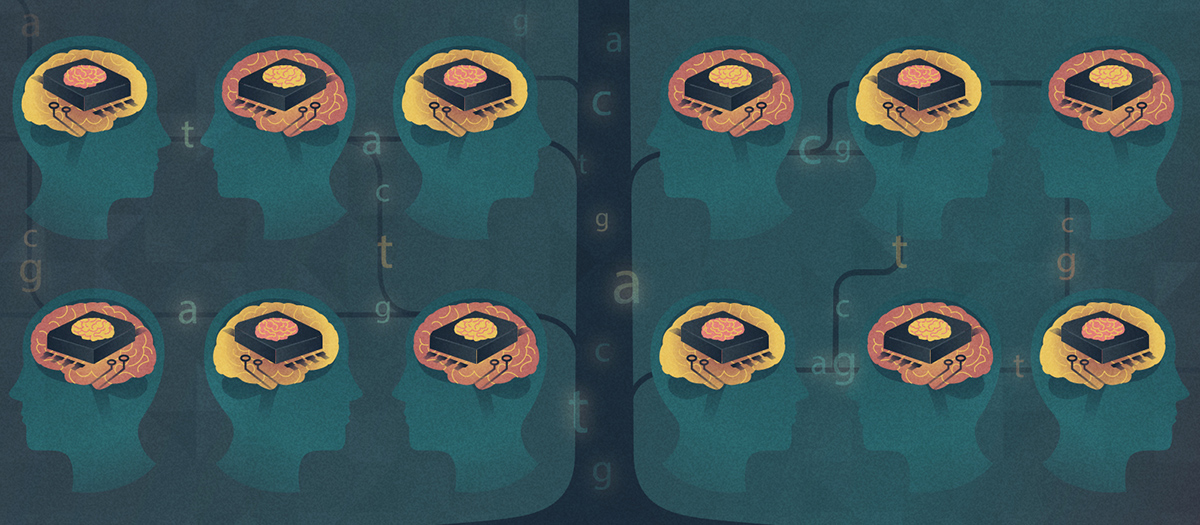By Magda Lisboa
Bio Bureau has in its DNA a structure of talents who together make innovation and revolution. The leadership challenges the team with its avant-garde profile and commitment to “Lean Startup”.
In 2017, faced with the challenges of projects with clients, it became clear that we needed to change from the PREDITIVE way of planning and executing to a new ADAPTIVE way – the clarity that our issues were not “known” based on evidence from the past, but rather “knowable” and even “unknowable” – that we needed to change the way we planned and delivered results.
Steve Blank and Eric Ries had already made scientist Mauro Rebelo’s head spin – Lean where Agile begins – was the perfect explanation and the Agile Manifesto with its principles and values were the pillars for change. The Bio Bureau’s main premise was to move from PREDITIVE to ADAPTIVE. The challenge was to involve talent, understand the problems and move towards organizational agility, especially in relation to projects.
The basis of the transformation is when we understand the agile mindset, and especially the culture with its values, the understanding of delivering value to customers and the learning that will guide how to scale agile in the organization.
Thus, the Agile Manifesto has one of the values “individuals and interactions rather than processes and interactions” and with this I will develop the agile experience of Bio Bureau.
Agile teams work very closely together, meet frequently, have collaborative meetings and act transparently. Teams are autonomous and self-organizing; today Scrum has come to call them self-managing. Let me remind you of the SCRUM values: commitment, courage, focus, openness, respect.
Agile is not a methodology or a set of practices. People are not resources to be used or controlled. Agile is linked to culture and is essentially about people, how to value them and give them the space and autonomy to be proactive and give suggestions on problem solving. You work better when you are motivated; human beings are an organization’s greatest asset.
Previously, Bio Bureau teams acted with command and control. In a very simplified way, projects had plans with various deliverables and teams carried out activities and tasks defined by a specialist or project manager. The teams carried out something pre-defined and since science deals with so many uncertainties, something already pre-determined with the clients in a plan was not necessarily what happened, many uncertainties and new ideas from the scientific world came to light.
In 2018 we introduced a new way of working with teams. We started with SCRUM, with its pillars: transparency, adaptation, inspection. With its aforementioned values, ceremonies and roles. It was all very new for the team, which was renamed the Development Team. This was a major impact of the change, as the freedom to be self-organized was strange and daring. It was incredible and pleasurable to see talents revealing themselves and showing proactivity, taking on contraction vs. relaxation and, above all, the team striving to achieve results, everyone supporting each other in the realization of the Sprint. The multidisciplinary nature of the team revealed talents, and people began to develop skills that would not have been revealed except for the opportunity.
SCRUM has the rite of ceremonies, the scenario was a pandemic, a virtual environment, but the Sprint meetings (planning, daily, retrospective, review) took place with a British punctuality. Over time it was concluded that it was necessary to adapt SCRUM to a Bio Bureau method and I believe that’s how it is today.
Agile is obsessed with customer satisfaction. And the next step was to involve the client in the agile approach, to enshrine contracts with “knowable” deliverables, which are full of uncertainties and where there is a recognized effort to define, test and take advantage of/reject hypotheses. And so a new way of planning project plans was created.
In closing, I would like to highlight the talented developers, the vigorous scientists, who were proactive in determining and choosing the user stories for the sprints, and who embodied the values of Scrum. Overemphasize and value the Product Owner’s willingness to architect the most favorable product backlog with their epics. And also the facilitation of the Scrum Master in the changing environment.
I worked at Bio Bureau from 2017 until the end of 2020 and it was a very successful experience! The big focus now is how to scale Agile in the organization, the subject of Change Management and really taking care of the Culture (beliefs, values, principles) and the Manifesto! But Agile Transformation at the Bio Bureau is already a reality!

